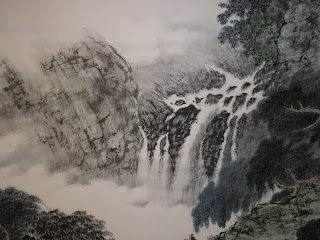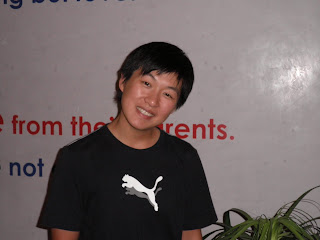Now as much as I have tried to detach myself from American goings on, I couldn't resist the opportunity to write an election bit.
Much to no one’s surprise, the democrats suffered heavy defeats this week, most notably losing control of the House. The Republican leadership wasted no time in making well timed public statements laced with all of their usual talking points. “The American people blah blah blah. Washington needs to start listening yada yada.” Celebration is premature however, and this shift may not be the conservative boon that it appears to be.
The anti-incumbent attitude coupled with the nascent but energetic Tea Party has brought a wave of new voices to Congress. And while they got there on the GOP ticket, classifying them as Republicans is hardly accurate. While the Tea Party’s populist bluster helped energize the conservative base, many of the goals they campaigned on are hardly in line with the standard GOP fare. First and foremost, the Tea Party is on a crusade against dept and federal spending, and seems ready to go at the federal budget with a machete. The Republican establishment however, while being supportive of cutting costs, is very particular about what they cut, and consider many areas of the budget off limits. The GOP will talk long and hard about small government, but when one brings up the idea of cutting defense spending or entitlements, many Republicans will consider it out of the question.
This means that the GOP will be in a difficult position come January once these new members are sworn in. Judging from the Tea Party’s campaign rhetoric, they seem to think that they will be calling the shots once they get to Washington. “Will of the people” and all that. They are most likely in for a rude awakening, as the first priority of the GOP establishment has to be reigning in these new members and their rhetoric. The Tea Party may bring the votes, but they don’t bring the money, and I’m guessing the leaders on the Hill will be quick to let them know it. Party continuity and unity is the GOP’s most valuable asset and they can’t afford to have the new blood making waves just as the party finds itself back in a position of power.
This is coupled with yet another risk. Bringing the new Tea Party congressmen in line with the establishment runs the risk of inflaming and alienating that same Tea Party that handed them this victory. The bulk of the Tea Party has shown little love for the GOP’s Washington insiders, and once they see their candidates getting co-opted by the same incumbents they tried to throw out, they are liable to hit back even harder in the next election and further pull the party away from the establishment.
These risks are compounded by the fact that the Republican’s favorite whipping post, Nancy Pelosi, is out of the picture and the crosshairs are now firmly on John Boehner. While the goals he laid out in the GOP’s ‘Pledge to America’ are conveniently vague, he still has serious expectations on his shoulders, and if he is unable to get any of Obama’s measures pushed back (a nearly impossible task when one only has the house), to say nothing of pushing through any legislation of his own, he may find himself in hot water and soon. This election cycle proved that Americans have little in the way of patience during economic downturns, and the new speaker will need to realize that and waste no time.
And where is Obama in all of this? Despite major losses for his party, Obama is, for all intents and purposes, secure. The two major pieces of legislation he needed congressional control for, i.e. healthcare and financial reform, have already been passed, and this generation of Democrats have already shown that they are not ready to tackle Obama’s more controversial goals like carbon caps. Obama has wisely saved his more bipartisan goals for after the midterms, as he surely saw some of these losses coming. He can now give his energy to issues that can realistically garner bipartisan support, such as reform or repeal of President Bush’s controversial education programs, and renewable energy.
Most importantly however, Obama now has an enemy he can align himself against. Congress will be no less deadlocked than it was this past year, but now Obama can lay blame right at John Boehner’s feet, and launch a veto at any attempted House repeal of his legislation.
The irony is that Obama may be the only real winner in the election. The biggest weight around his neck these past two years has been his inability to force unity out of a Democratic congress. Now he can effectively wash his hands of it and sit back and watch both the GOP wrestle with itself over platform, and the remaining Democrats torpedo any serious legislation the right produces. If he’s lucky he won’t even need to use a veto, and all the while he lays the ground for 2012. The wheel just keeps on turning…




























